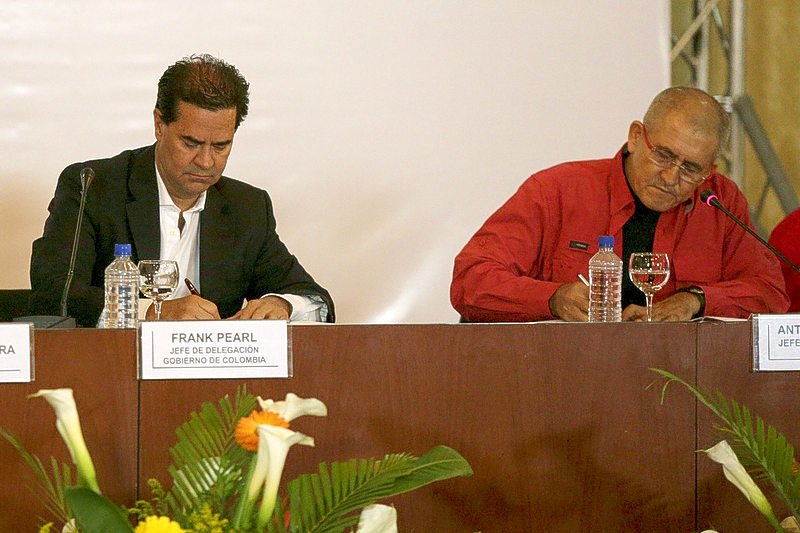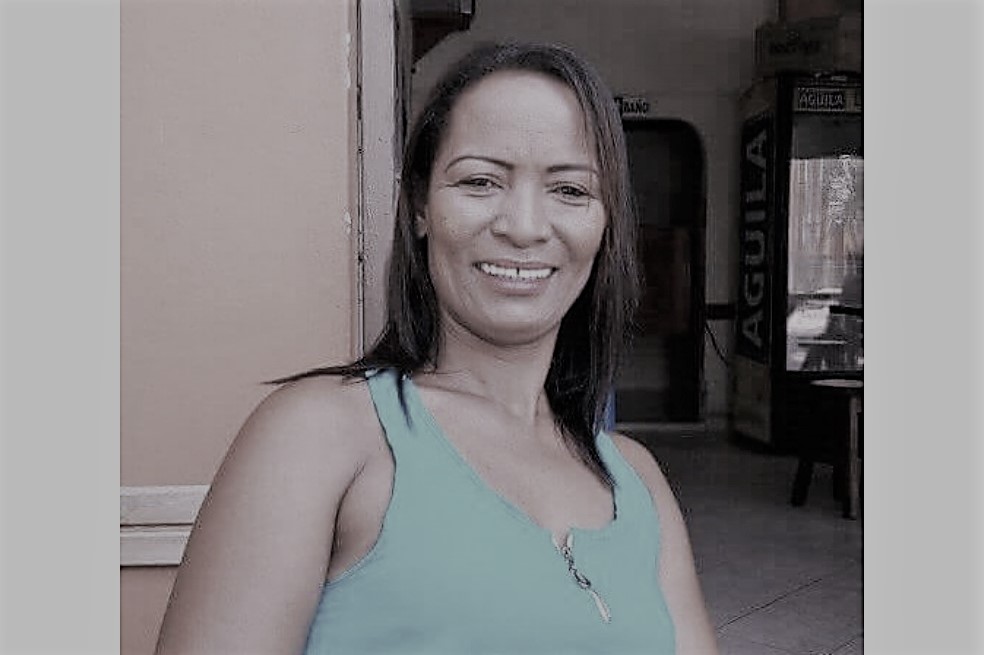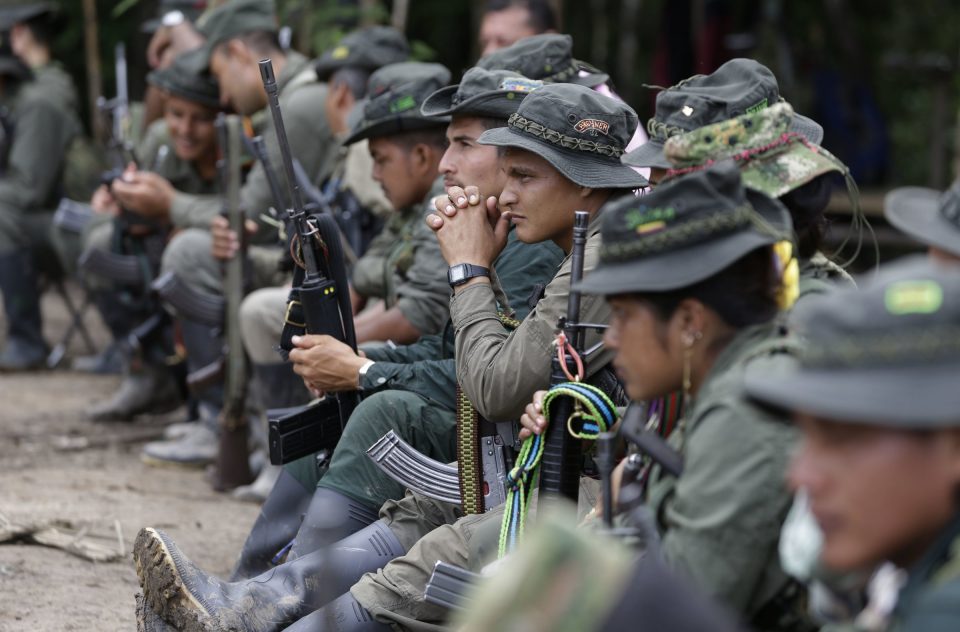
Frank Pearl, head of Colombia’s peace negotiation team, left, and Antonio Garcia, chief negotiator of the National Liberation Army, or ELN, during a signing agreement to start peace talks, in Caracas, Venezuela.
The ELN and the government made a joint announcement on Wednesday March 30 that they will begin the public phase of peace talks, following over two years of exploratory talks between the two sides. The announcement was a much needed piece of good news for the prospects of peace, coming just one week after the negotiators in Havana were unable to meet the deadline for signing a full peace accord with the FARC
So, what can we expect from these long awaited talks? And how will they connect with the discussions that are taking place in Cuba?
In an article published in El Tiempo last month, ELN-expert Joe Broderick affirmed that reaching a peace deal with the country’s second largest guerrilla group would be very difficult. While the ELN is often considered the more “intellectual” guerrilla, Broderick considers them inept when it comes to negotiating. He worries that efforts to forge a bilateral agreement with the ELN will remain fruitless, as the rebel group lacks important political manoeuvring skills. “They are indifferent to the current political climate,” Broderick wrote.
Perhaps some of these observations explain why exploratory talks with the ELN went on for a long two years before the beginning of a public and formal phase of peace talks was finally announced in the Venezuelan capital, Caracas, on Wednesday. One might think that, with four partial agreements already reached with the FARC, the groundwork for negotiations with another guerrilla has been laid.
But the ELN is not the FARC, and their ideological differences make it difficult to apply a one-size-fits-all model for peace.
Historically, the ELN has prioritised two issues that may have been major obstacles in the pre-negotiations: the direct participation of civil society in peacebuilding and the restructuring of Colombia’s oil and mining industry. With President Santos’ insistence that the economic model will not be subject to negotiations, it is unsurprising that the latter did not make it into the itinerary for peace dialogues with the ELN.
The issue of civil society participation, on the other hand, is the first item on the agenda and arguably its most distinguishing feature. The agreement envisions mechanisms that facilitate the “direct, active, inclusive and pluralist” participation of society in an effort to reach a “shared vision of peace” – something that, according to many critics, has been lacking in the negotiations with the FARC.
Introducing this new element to the peace talks is a vital step to counter the scepticism that not only surrounds the current process in Havana, but possibly also the upcoming talks with the ELN: Last month, only 19.3% of Colombians believed that the ELN was willing to negotiate with the government. Given the previous failed efforts to reach a peace deal with this rebel group, that scepticism may prevail for a while even after the announcement made on Wednesday.
In addition, there is reason to believe that the process with the ELN will not be easy. While the agenda established by the parties constitutes an important milestone, its content is still very vague and many questions remain as to how it will be affected by the agreements already reached in Havana.
At first sight, there are many overlapping points, but it is well known that the ELN likes to apply different standards than the FARC. It may demand adjustments to the political participation and victims’ rights agreements, despite the fact that the government’s willingness to negotiate these points is obviously limited: creating multiple agreements for multiple groups delegitimises the peace processes and defies the purpose of many provisions reached in Havana, most notably the transitional justice system. After all, it was not only conceived for the FARC, but for all actors that were directly or indirectly involved in crimes committed during the armed conflict.
These pressing questions will likely determine the success of the new negotiations. As for the relationship between the two peace processes, the Colombian government has only gone as far as saying that “once the public phase (with the ELN) has started, the delegations will define which issues require coordination with the peace talks in Havana.”
Against this sketchy background, it is difficult to say where the negotiations with the ELN are headed. The good news is that the announcement made in Caracas may help balance the scale on the integrity of the peace process in general, especially after the FARC and the government failed to sign a final peace agreement by the self-imposed deadline last month.
What is certain, however, is that Colombia’s genuine transition into an actual post-conflict phase (and not just a ‘post-agreement’ phase) will remain inconceivable until the second largest guerrilla group sits down at the negotiating table. That is why, since the beginning of negotiations with the FARC, President Santos has reiterated the importance of engaging with the ELN – otherwise peace in Colombia will never be “complete”.
Veronika Hoelker holds a Master’s degree in International Relations of the Americas from UCL and currently works at the Bogotá-based NGO the Permanent Committee for the Defense of Human Rights. Veronika assists the judicial advisers at the NGO in matters related to transitional justice and the Colombian peace process in general.





